It feels like the right moment, perhaps overdue, to step out from behind the curtain and share how I found myself here, doing this work. Many of you may not know the full journey, an intricate mosaic shaped by shadows and light, where each fragment holds a lesson in what it means to be human.
The Forge of Early Years
I was raised fatherless in government housing on the South Side of Johannesburg. Poverty wasn't just a circumstance; it was the air we breathed, the lens through which we learned to see the world. I still remember those nights when hunger was my grandmother's silent sacrifice so I wouldn't go to bed on an empty stomach. In her quiet heroism, I first glimpsed what the Stoics call amor fati, the love of one's fate, transformed through dignity into something approaching grace.
My home was a fortress of chaos, guarded by three women: my mother, grandmother, and aunt. Each carried their burdens with a stoicism born not of philosophy books but of necessity. But it was my mother, lost in the haze of alcohol and rage, who left the deepest scars. Her weapon of choice was a metal frying pan. But that was the lesser of her arsenal; her words cut deeper, and her silence deeper still. Until the moment she passed, battling cancer in the backseat of my car, she never once uttered that simple phrase every child longs to hear: "I love you."
Yet even in this absence, I learned something profound: that we are not merely the sum of what we receive, but what we choose to give. The philosopher Emmanuel Levinas speaks of the "face of the other" that calls us to responsibility. My mother's face, twisted by her own unhealed wounds, became my first teacher in compassion's challenging curriculum.
The Paradox of Violence and Peace
Childhood for me was a constant dance with fear, not just at home, but on streets ruled by gangs and in classrooms where bullies thrived. I was always anxious, always afraid. Martial arts became my refuge, a shield and a lifeline. It wasn't about aggression; it was about survival. I crafted routes home meticulously, avoiding confrontation at all costs. Violence terrified me, yet paradoxically, it also saved me.
Here lies a truth I would only understand decades later: sometimes we must become what we fear to transcend it. The ancient warrior-philosophers understood that true strength lies not in domination but in the capacity to protect and stand between chaos and those we serve.
I always felt I was different to everyone else as a child. A solitary wanderer of imagination and nature, worlds away from soccer fields and boyhood bravado. While others kicked balls, I conversed with trees and clouds, finding in nature what Thoreau called "the tonic of wildness." At eleven, singing in the school choir, I discovered joy, only to lose it when the taunts grew unbearable. By fourteen, isolation turned into notebooks filled with scribbled theories on self-defence, desperate attempts at control amidst chaos.
Yet, even then, standing atop my neighbourhood's tallest building at fourteen, I came inches from ending my story prematurely. In that moment of ultimate despair, something held me back, perhaps what Viktor Frankl calls the "defiant power of the human spirit," the inexplicable capacity to find meaning even in meaninglessness.
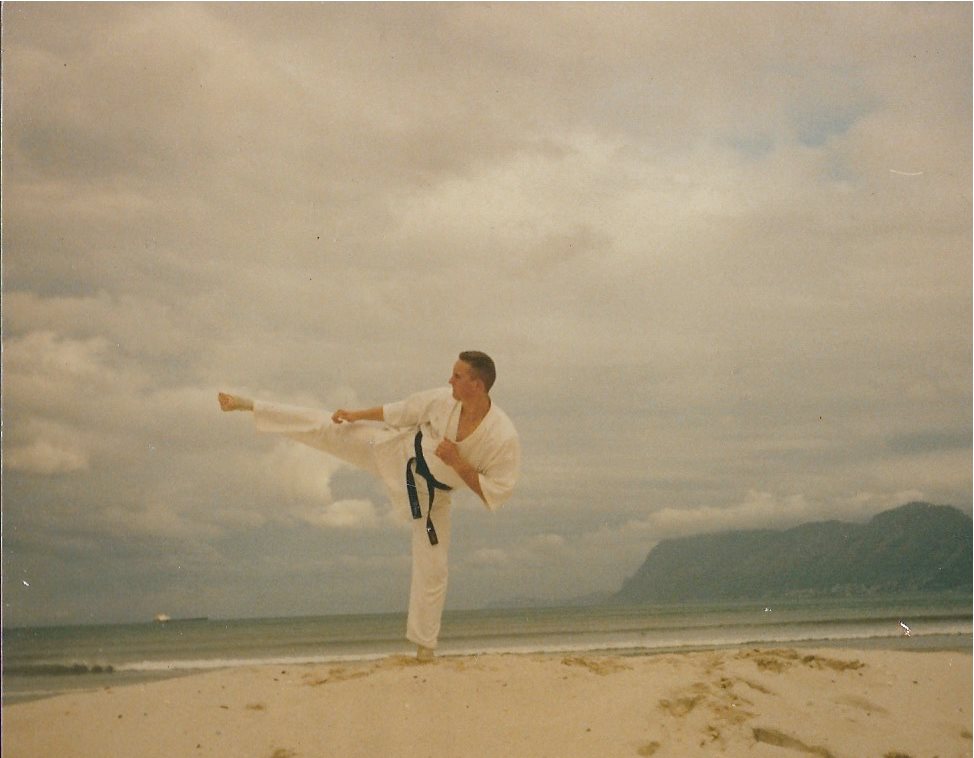
The Warrior's Path
At seventeen, following yet another episode of my mother's drunken abuse, I was cast out to face homelessness on Johannesburg's harsh streets. To survive, I joined the military before my compulsory service was due. I turned eighteen in the Close Protection Unit of the South African Military Police. I vowed to reclaim my power. The army moulded me into a protector, fierce and unyielding. I became the platoon sergeant and lead hand-to-hand combat instructor, transforming my fears into strength.
But transformation is never simple. In learning to embody force, I discovered its limitations. True power, I began to understand, lay not in the fist but in knowing when not to use it, what the Taoists call wu wei, action through non-action.
Post-army life offered no immediate salvation. Without a high school diploma, I found work where I could, as a bouncer at Johannesburg's roughest nightclubs. For years, night after night, I witnessed and weathered the worst of humanity's interpersonal conflicts. But in 1998, after surviving an attempt on my life, I decided it was time to teach martial arts, fully and fearlessly. The bullet that missed became my philosophical awakening, a violent koan that posed the question: "What are you truly living for?"
Building and Breaking
And so I did. I threw myself into teaching martial arts with the fervour of someone who had found their calling.
In my mid-twenties, I became a father to two boys. Having never met my own father, I was terrified of inadequacy, of perpetuating inherited pain. Instead, they became my heart's greatest joy. In their eyes, I saw my chance at redemption, to break the cycle of generational wounds. Professionally, success followed swiftly. My martial arts academy blossomed into South Africa's largest, earning me the distinction of being the country's first Brazilian Jiu-Jitsu black belt. My martial art methods spread globally, adopted by special forces, elite policing units, and everyday heroes seeking empowerment. At the height of my success, my programmes reached 15 countries worldwide. I taught everywhere from Alaska to Australia.
Financial success brought stability, a house in the right neighbourhood, a sports car, and private schools for my sons. Yet something gnawed at my soul, a quiet unease that refused to be silenced by material achievements. What Kierkegaard called "the sickness unto death”, that existential anxiety that whispers of lives half-lived, began its slow emergence.
Education called me back, leading to two master's degrees, a PhD, and now a journey toward a second doctorate in lived philosophy. In academia, I sought what success couldn't provide: understanding. Not just of techniques and tactics, but of the human condition itself.
The Dark Night of the Soul
But as I approached forty, cracks appeared. Depression took hold quietly but unrelentingly. Daily headaches, exhaustion, an unseen weight pressing ever harder. Life went on outwardly—planes, seminars, accolades—while inwardly, I unravelled. The warrior's armour, so carefully constructed, began to rust from within. Eventually, the toll became undeniable; my marriage ended, and I left South Africa in search of healing.
In 2023, life delivered another brutal blow: severe cervical degeneration, CTE-like symptoms, and chronic fatigue syndrome. I was told, unequivocally, martial arts, my lifeline, my identity, had to end completely. The devastation was profound. For a moment, I felt utterly lost, cast out from the only Eden I had cultivated with my own hands.
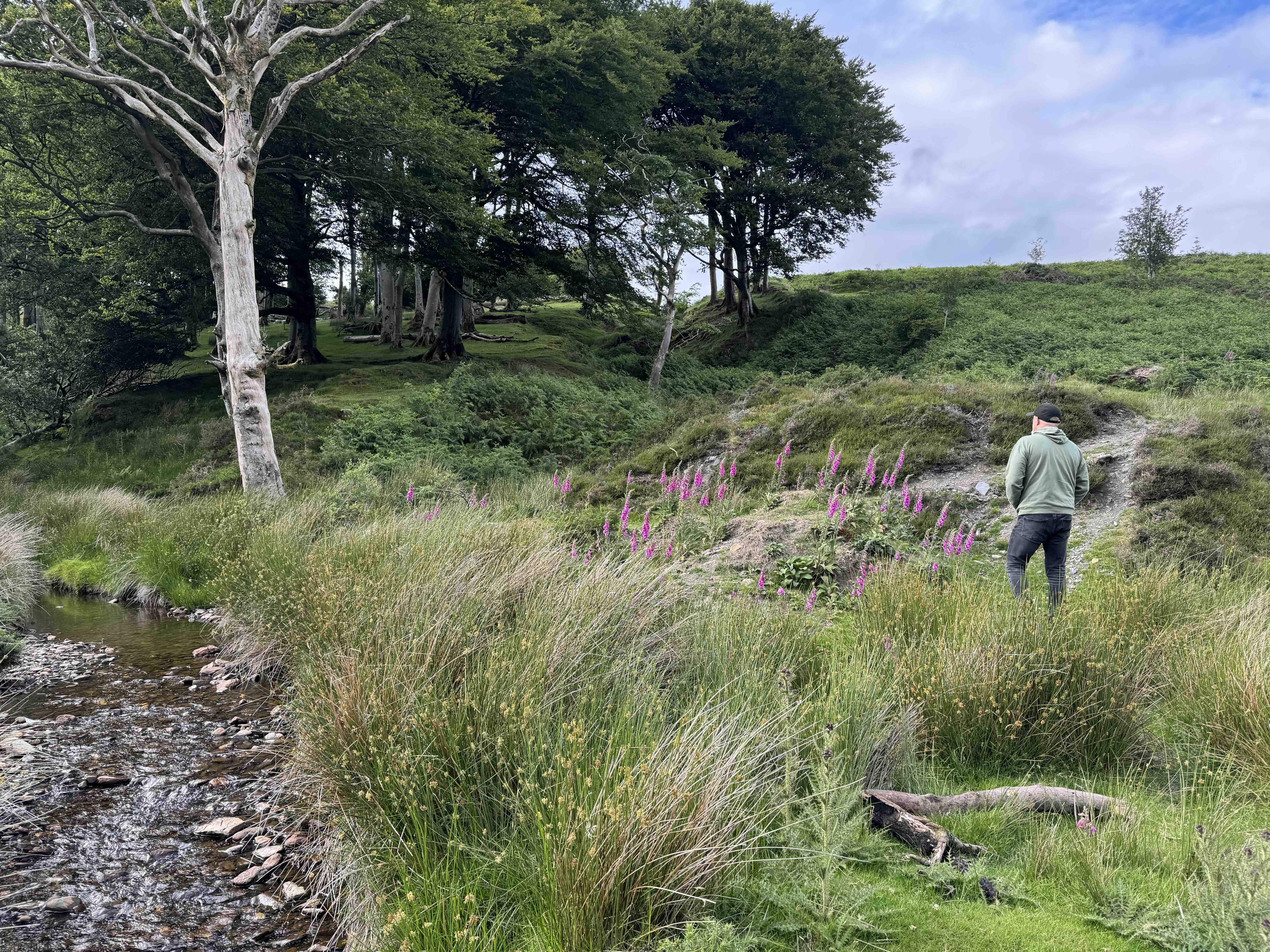
The Return
Yet in this darkness, something profound emerged. A remembering. A return. Not to what I had built, but to who I had always been beneath the armour, to the child who once stared dreamily out classroom windows, who found solace in nature, who believed fiercely in kindness and creativity over competition.
Slowly, through pain and patience, through walking quietly along shorelines and woodland paths of the Isle of Man, I've been reclaiming that self. The Japanese have a word, kintsukuroi, the art of repairing broken pottery with gold, understanding that the piece is more beautiful for having been broken. My life, I realised, was not ending but being reborn.
In losing my physical strength, I found something more enduring: the strength to be vulnerable, to teach not from invincibility but from a deep knowledge of fragility. The philosopher Martha Nussbaum speaks of the "fragility of goodness”, how our highest virtues emerge not despite our vulnerability but because of it.
The Philosophy of Lived Experience
And now, in my 50s, here at Coaching Philosophia, I offer what I've learned through this journey. Not just philosophical insights gleaned from books, but practical wisdom for navigating life's shadows, guidance born from scars and survival. My approach weaves together:
- The warrior's discipline with the sage's acceptance
- Eastern mindfulness with Western critical thinking
- The body's wisdom with the mind's clarity
- Existential philosophical practices with modern psychological insights
I've learned that true philosophy isn't found only in libraries but in life's crucibles. That wisdom emerges not from avoiding suffering but from transforming it into compassion. That strength isn't the absence of weakness but the courage to embrace our whole selves.
My wish is simple yet profound: to help others find their way back to themselves, to flourish even amid the perils of modern life. To show that our wounds need not define us, that our stories, however dark their chapters, can become sources of light for others walking similar paths.
An Invitation
This is my story, the face behind Coaching Philosophia. Not perfect, but real, and deeply human. In sharing it, I extend an invitation: to join me in exploring what it means to live philosophically in a world that often feels hostile to reflection, to find practices that honour both our strength and our fragility, to build lives of meaning from whatever materials we've been given.
For in the end, I've discovered that the greatest martial art isn't found in any dojo, it’s the daily practice of becoming more fully ourselves, of turning our struggles into wisdom, our pain into purpose. This is the philosophy I now teach: not how to fight, but how to flourish; not how to conquer, but how to connect; not how to armour ourselves against life, but how to open to it with both courage and grace.
Welcome to Coaching Philosophia. Welcome to the journey home.
Want to go deeper?
If this resonated with you, imagine what’s possible in a conversation built just for you. 1:1 Philosophical Coaching offers a quiet, reflective space to untangle what matters, reclaim your rhythm, and explore what it means to be fully human—on your terms.
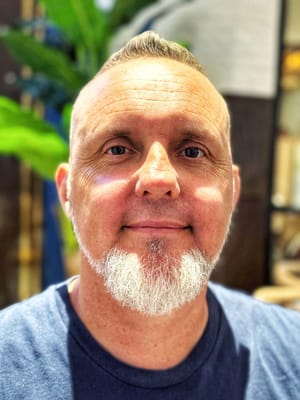
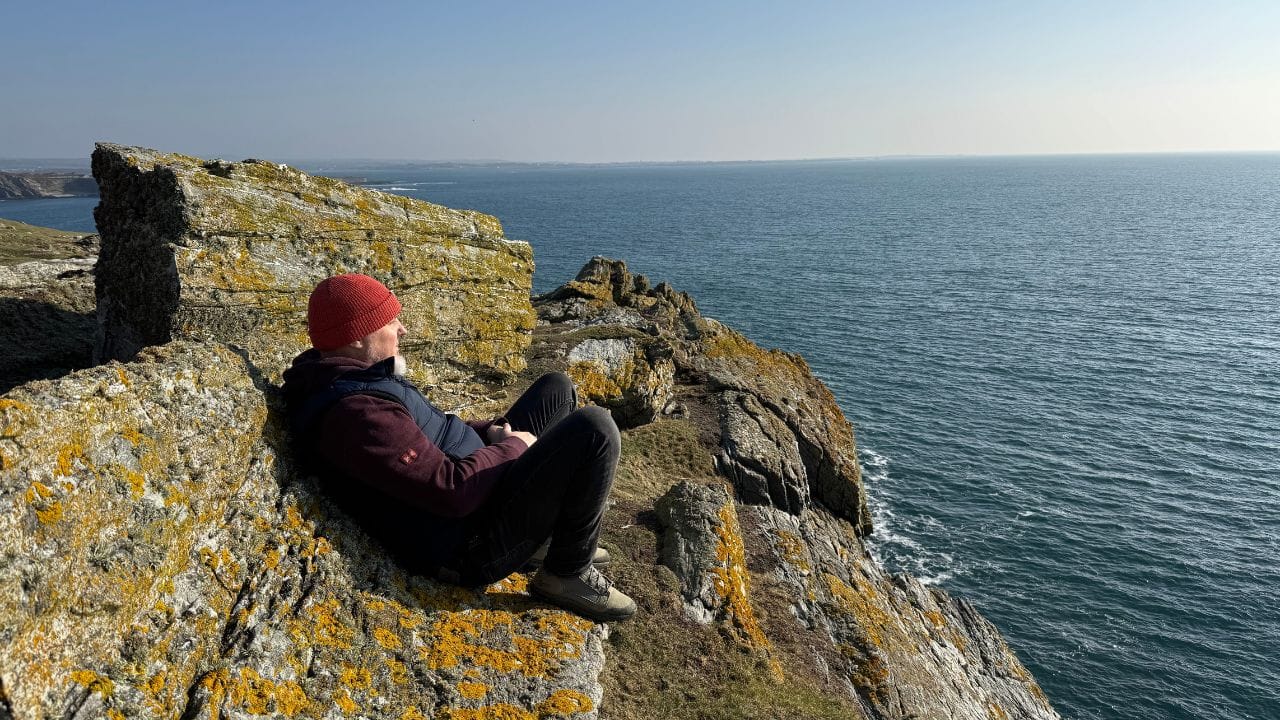


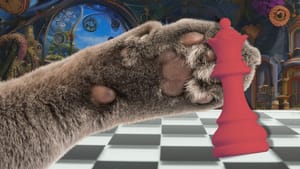
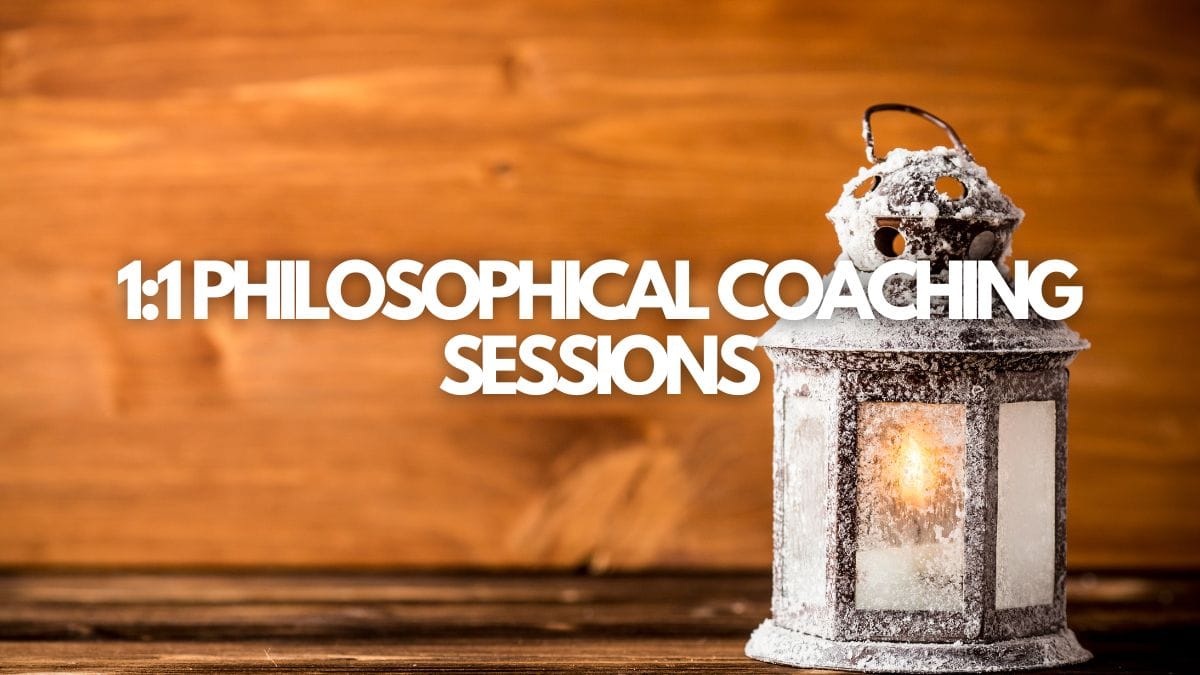
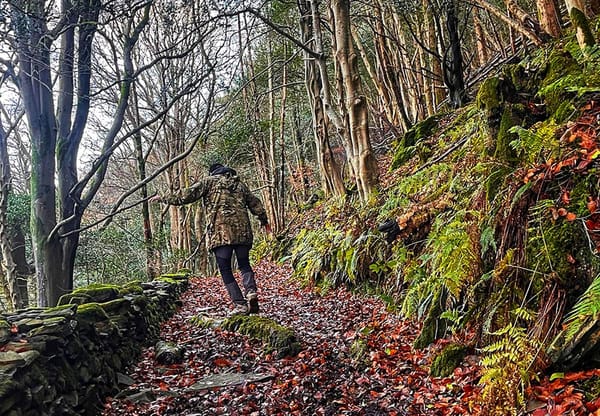
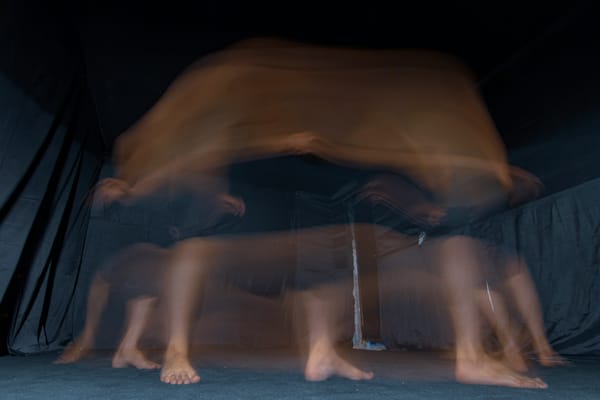


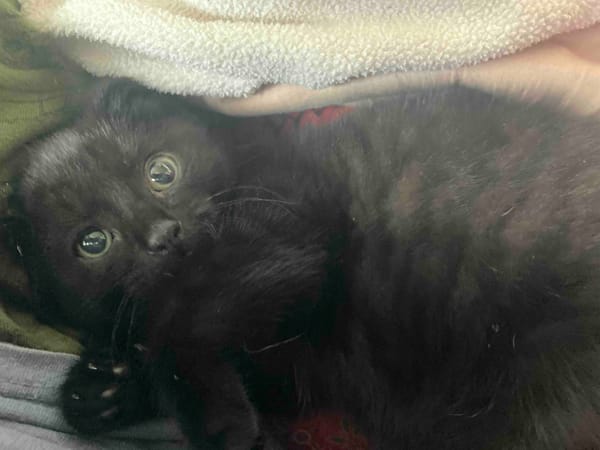
Member discussion